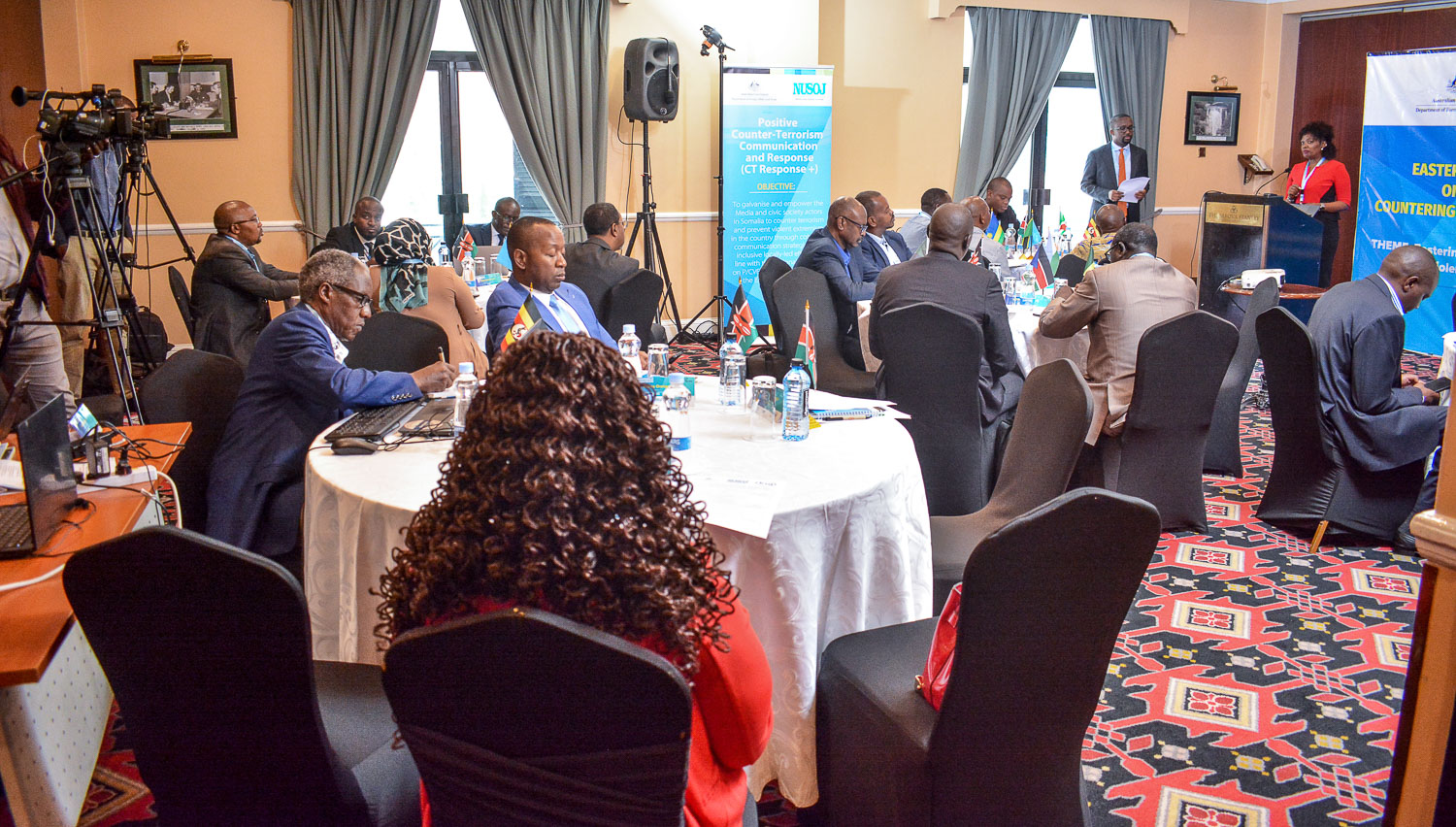Journalists’ leaders and representatives from across Eastern Africa have called for decisive action to support media professionals in their efforts to combat disinformation, misinformation, and hate speech propagated by violent extremists.
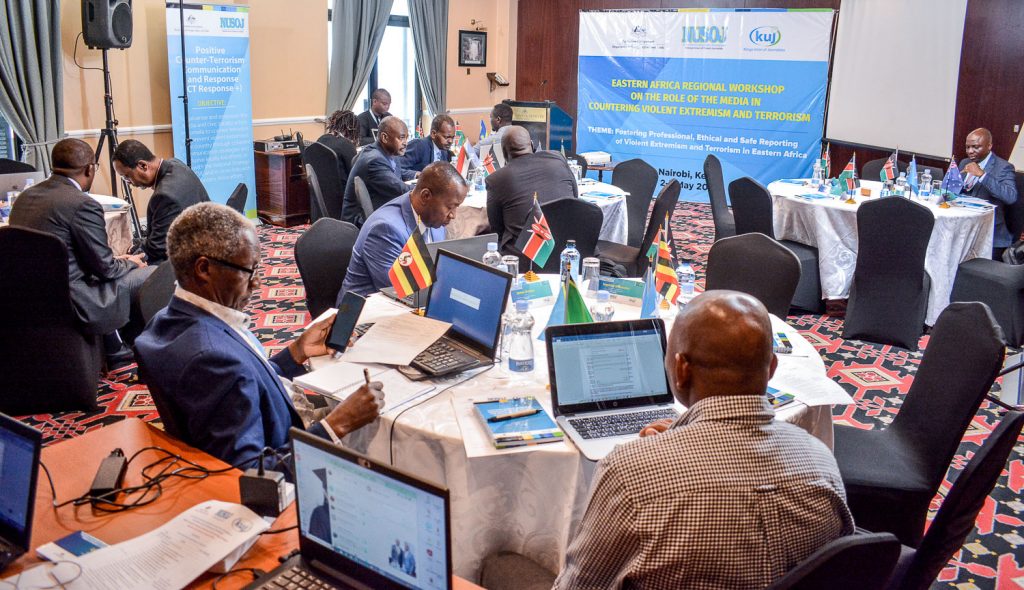
The appeal came at the end of a two-day regional workshop on the role of media in countering violent extremism and terrorism. Held in Nairobi on May 2-3, the ground-breaking event brought together participants from Burundi, Djibouti, Kenya, Rwanda, Somalia, Sudan, South Sudan, Tanzania and Uganda.
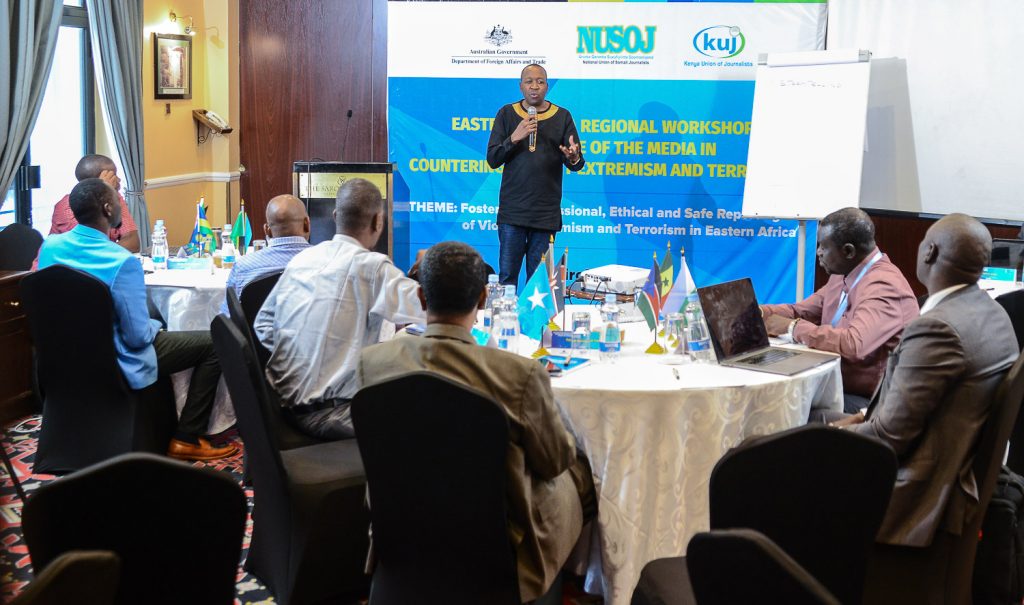
It marked the first time that journalists’ leaders from these countries had made a joint commitment to act in the interests of thousands of journalists who face threats of violence, targeted attacks, and deadly reprisals in the course of their work.
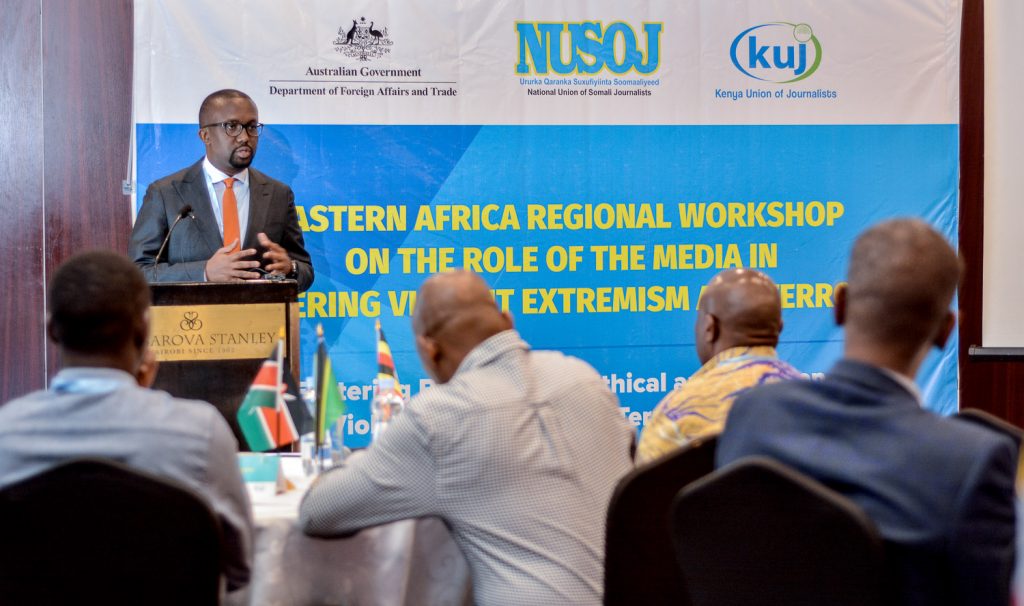
The delegates urged national governments to develop and institutionalize strategies that acknowledge media as a key partner in countering violent extremism and that ensure journalists can perform their duties without fear of retribution from either state actors or extremist groups.
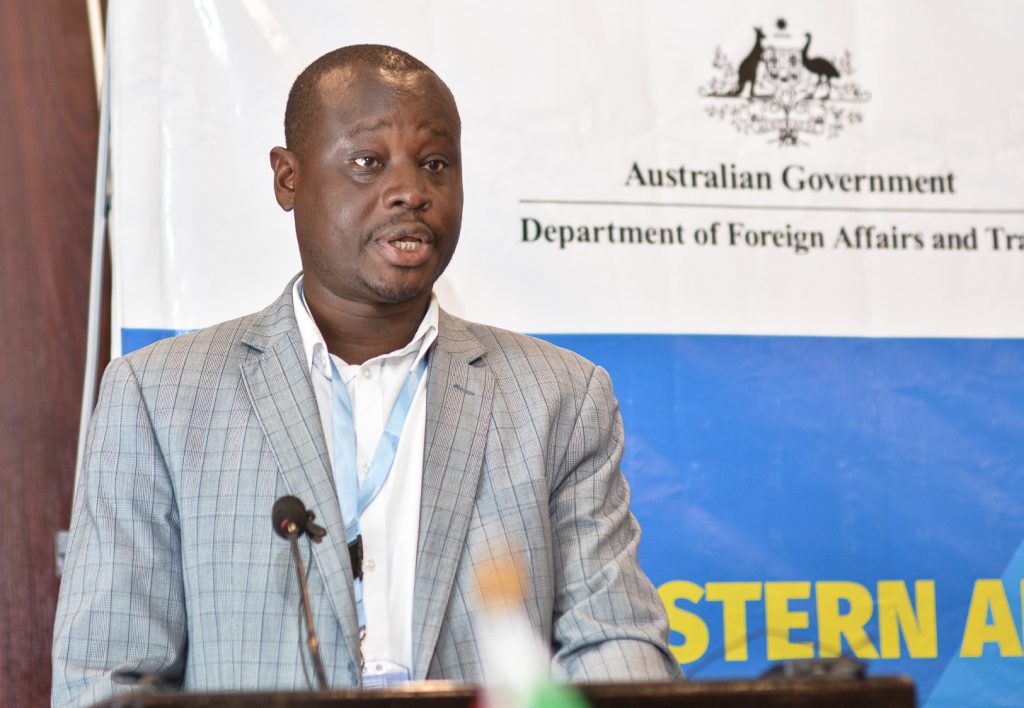
In his welcoming remarks, Mr Eric Oduor, Secretary General of the Kenya Union of Journalists (KUJ), highlighted the need to equip media practitioners with the skills to report safely and effectively in a region that was increasingly vulnerable to terrorist attacks.
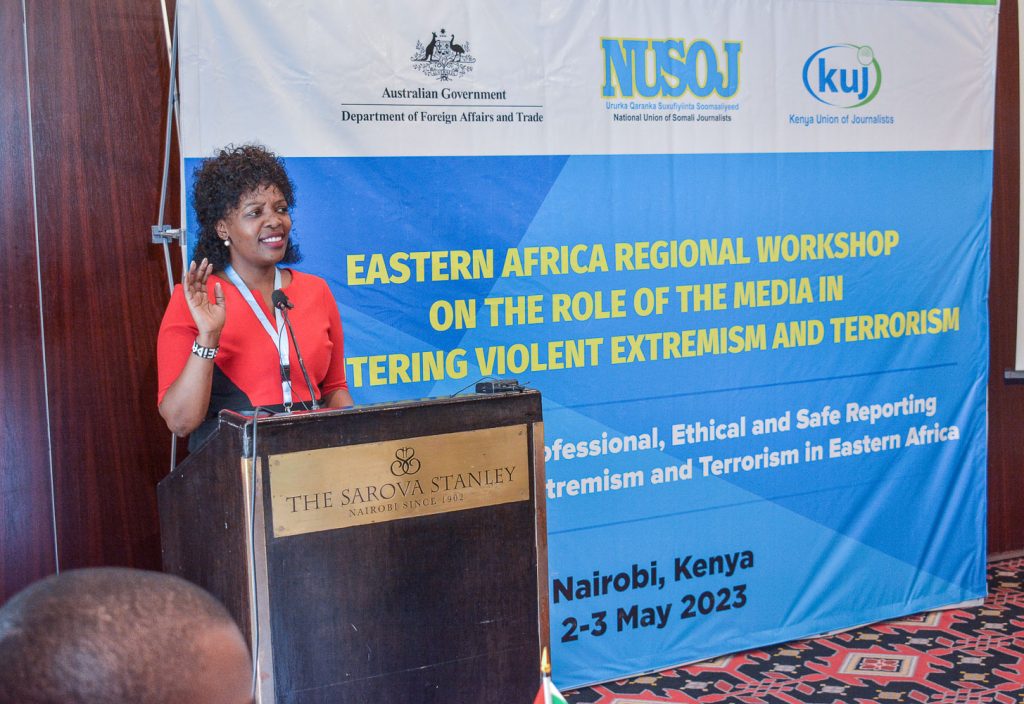
This view was echoed by Ms Zubeidah Kananu, President of the Kenya Editors Guild, who said that the media must “remain alive to the changing circumstances of the work environment and the attendant responsibilities and dynamics”. She added that journalists have a frontline role in countering and preventing “the proliferation of terrorist narratives to deny them the legitimacy they would wish to claim”.
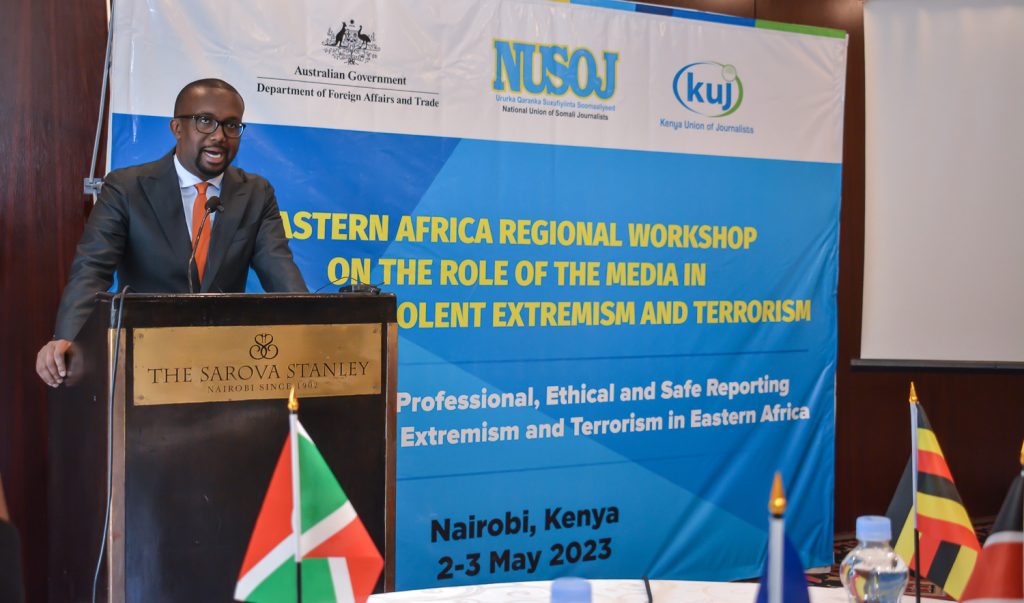
The grim toll of terrorism and violent extremism on media professionals was highlighted by Mr Omar Faruk Osman, Secretary General of the National Union of Somali Journalists (NUSOJ), who said that nearly 80 journalists had been killed in Somalia over the past 15 years.
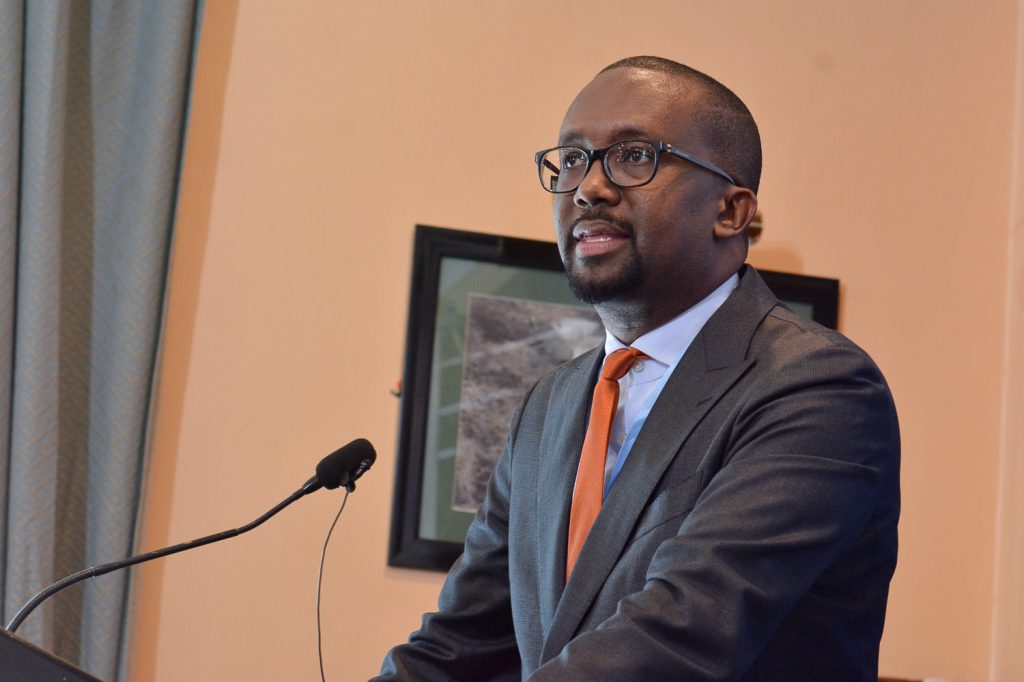
Mr Osman went on to say, “These journalists were mostly killed while covering terrorist attacks and bombings or they were deliberately targeted by terrorists for practicing journalism and refusing to be the mouthpieces of extremists and terror networks.
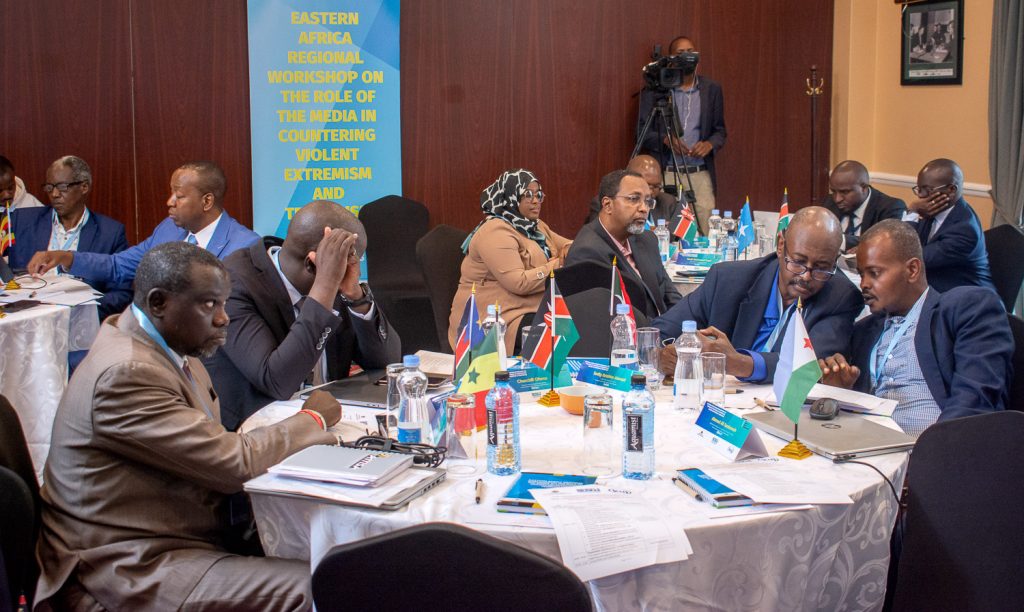
“At the same time, different armed forces and governmental agencies tend to treat them with suspicion and subject them to harassment or even violent attacks. It is high time that governments recognize the fundamental role of journalists as communicators and see them as allies in the fight against violent extremism and terrorism,” he concluded.
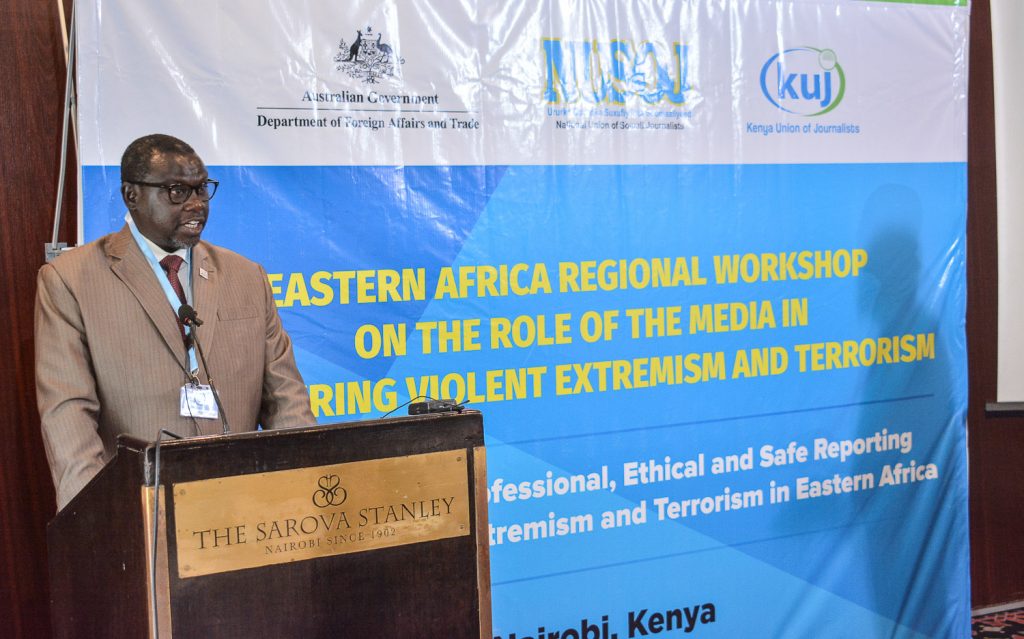
Mr Pa Louis Thomasi, Director of the Africa office of the International Federation of Journalists (IFJ), commented, “The question we need to find answers to is how can media report effectively on violent extremism without being targeted by their own governments and extremist groups?”
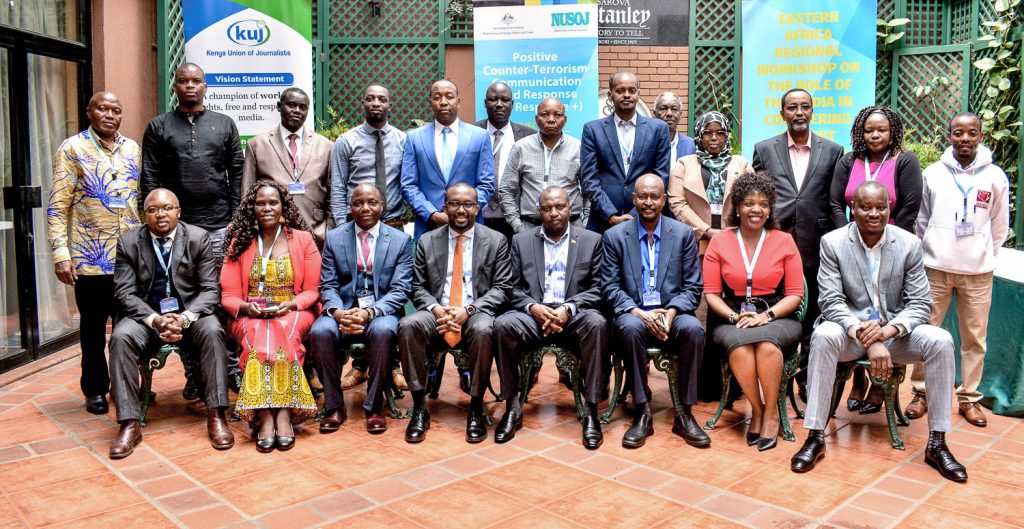
In the declaration adopted at the regional workshop, participants called on security forces and other state actors to cooperate in giving journalists access to information and to locations that would allow them to report safely and objectively on counter-terrorism operations and terrorist attacks.
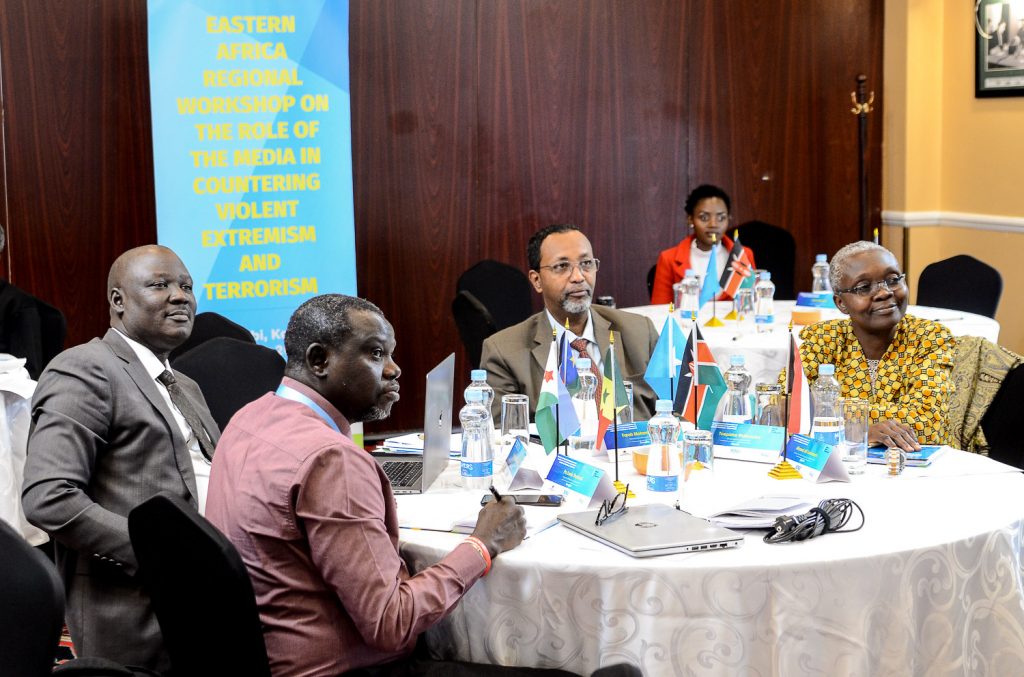
They also stressed that governments in Eastern Africa should take resolute steps to end the culture of impunity associated with crimes against journalists and bring the perpetrators of such crimes to justice.
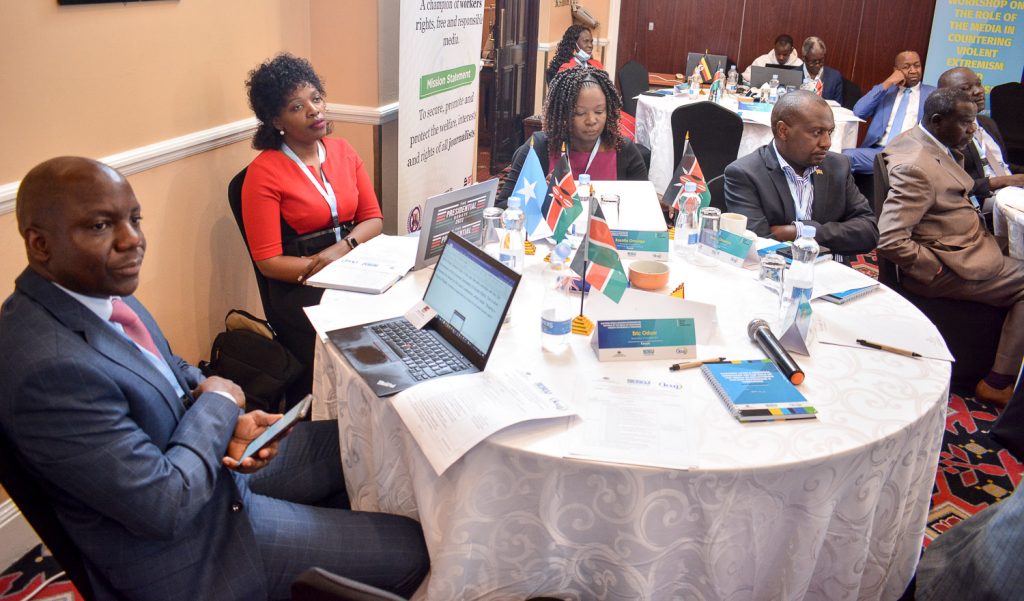
The lack of legal protections for media freedom, freedom of expression, and freedom of information was a key topic for discussion during the workshop. Delegates agreed that lawmakers should do more to ensure that national legislations were fully aligned with the principles enshrined in international conventions on human, civil, and political rights as well as safe working conditions.
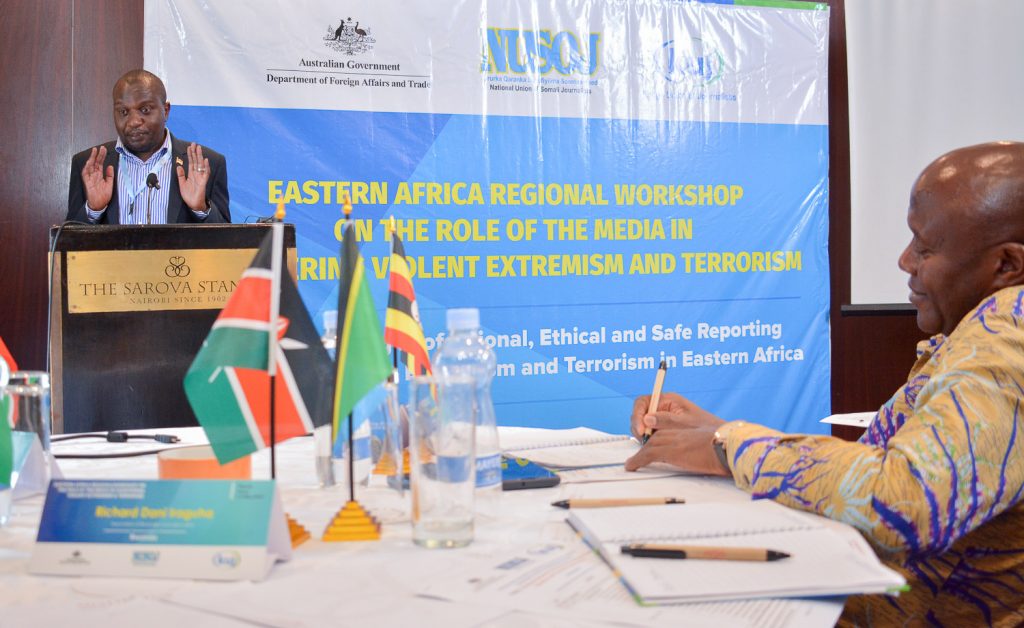
The role of regional bodies in supporting these efforts was also addressed. The workshop participants saw a continuing need for organizations such as the East African Community (EAC), the Inter-Governmental Authority on Development (IGAD), and the African Union (AU) to help integrate issues such as self-regulation and gender equality into national laws.
In addition, these bodies were asked to continue funding initiatives that build the capacity of journalists to produce impartial, accurate, and balanced reports on violent extremism and terrorism in Eastern Africa and contextualize these topics for their audiences.
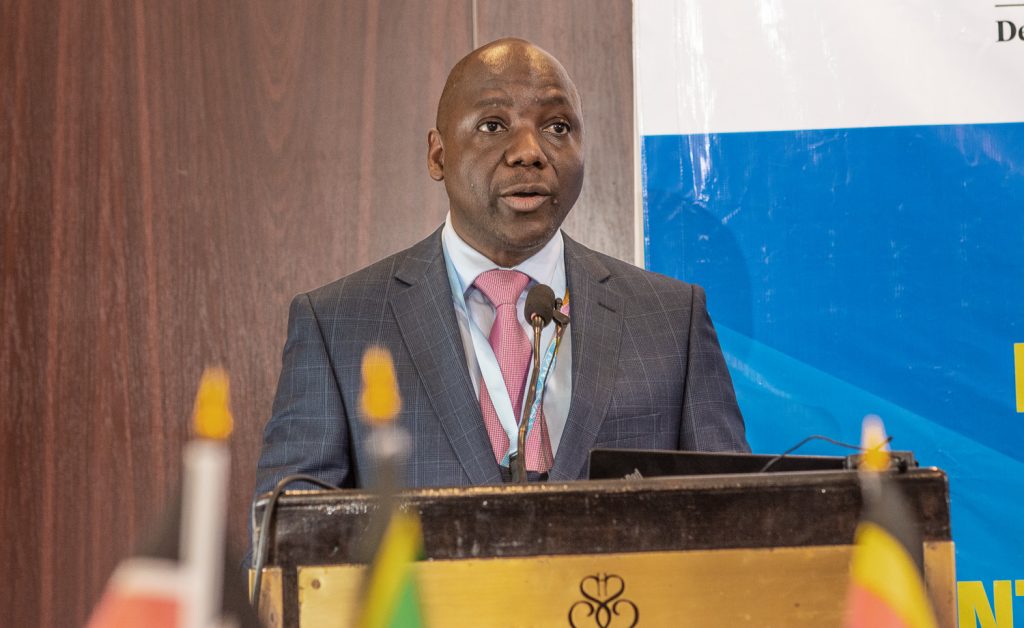
Ngandeu Ngatta Hugue, Head of Unit for the UNESCO regional office for Eastern Africa, noted the media’s crucial role not only in combating disinformation but also in ensuring that citizens can participate fully in democratic processes and the national discourse.
At the end of the workshop, delegates agreed on a regional strategy which will act as a roadmap for journalists’ leaders and representatives from across the region to engage in collective advocacy.
The event was organized by the National Union of Somali Journalists and hosted by the Kenya Union of Journalists. It was funded by Australia’s Department of Foreign Affairs and Trade (DFAT).
The Australian High Commissioner to Kenya, His Excellency Mr Luke Williams, commented, “It was encouraging to see that the media’s role in countering violent extremism and terrorism was top of the agenda at this regional workshop as well as in the media on World Press Freedom Day.”
He added, “The media holds a challenging role as informers of society amid increasing efforts by extremists to use their channels as a vehicle to spread their destructive narratives. Australia is committed to collaborating with our Eastern African partners to promote peace and stability in the region, which is why we are supporting initiatives, such as this conference, which are contributing to the prevention of violent extremism and terrorism.”

